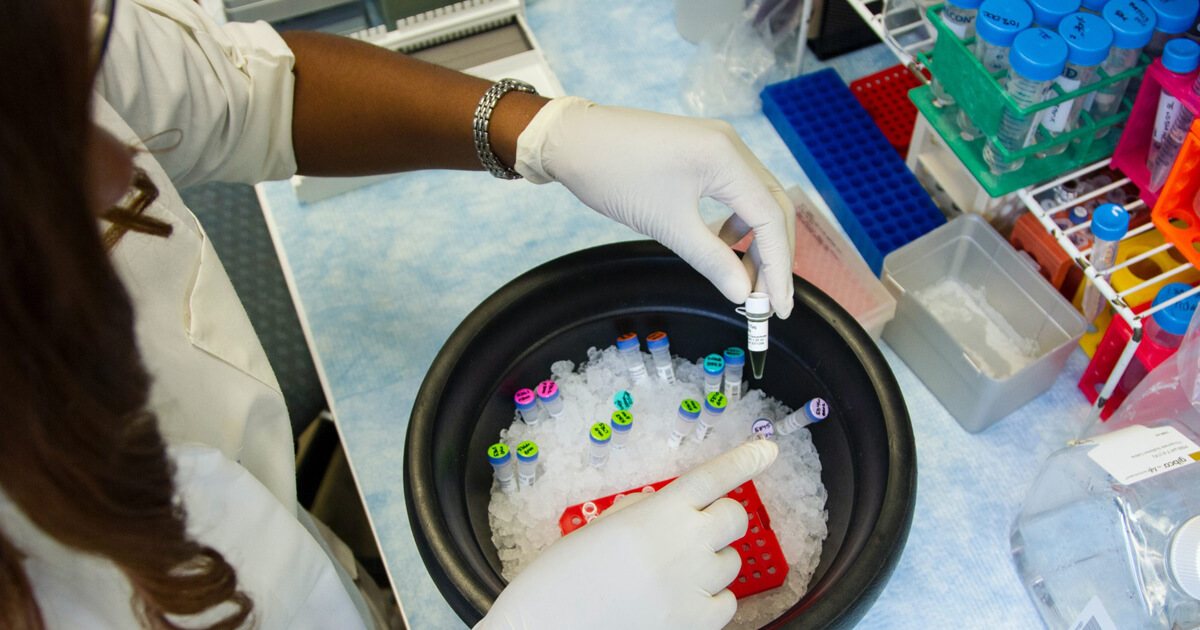The life science industry has a long way to go before it has a diverse workforce. A 2020 Biotechnology Innovation Organization (BIO) report, based on data collected from 98 responding member companies, found that companies were not ethnically or racially representative of the U.S. population. Biotech companies with higher levels of diversity are better situated to make more medical breakthroughs as biotech professionals work more closely with the communities they serve.
Among respondents in the BIO study, 66 percent of biotech employees who disclosed their race were White, 24 percent Asian, six percent Hispanic and four percent Black. Those numbers shift substantially at the CEO level, where 88 percent of company leaders are White, five percent Black, three percent Asian and three percent Hispanic.
The Plugspoke with several Black biotech CEOs and executives to better understand this data and how they have carved their pathways to succeed in the booming $105 billion industry sector. The biotech industry is compelled to be disruptive, said Dr. Michelle McMurry-Heath, the president of BIO said. McMurry-Heath’s work ranges from promoting diversity among clinical trial patients to making sure that companies find diverse candidates. Companies that embrace a mix of gender, racial, ethnic and LGBTQ representation will produce medical breakthroughs more in tune with what patients of all backgrounds need to live healthier and more productive lives, said McMurry-Heath.
McMurray’s organization works with about 700 biotech companies, and she believes better representation in the biotechnology industry will produce medical breakthroughs that will help clinicians, families and patients across the world. By recruiting outside typical professional networks, companies are more likely to have talent and skillsets they might not otherwise have. It gives them a competitive edge and ensures that their products are effective for the patients they are targeting, she said.
In June 2020, McMurry-Heath became the first Black woman to lead BIO. Under her leadership, the organization aims to shake up the status quo in an industry that’s historically been dominated by white men. Diversity, especially in leadership roles is quite limited, said Paul Mola, the founder and CEO of biotech company Roswell Biotechnologies.
There is a glass ceiling — meaning, we rise up and not any further. Every once in a while someone makes it through, but even then there are usually other forces that sort of push us back. Roswell Biotechnologies is a company working to develop low-cost, rapid DNA sequencing technology. Before founding Roswell in 2014, Mola career included stints at Roche, Life Technologies and Human Longevity. Mola said as one of the few Black CEOs in the industry, he often felt like he had to work twice as hard just to get noticed.
Further, Holmes suggests that venture capitalists who invest in newer biotech companies should aim to diversify their investing approach. The idea for the next Amazon could be sitting on someone’s table but will miss the opportunity because investors don’t typically invest in people that come from a different background. It truly hurts the potential in our world, said Holmes.Mola pointed out that one of the reasons for the low diversity numbers is closely tied to a lack of role models and mentors.
We certainly have a pipeline issue, said Enoch Kariuki, the former chief financial officer of VelosBio, a biopharmaceutical company developing promising cancer therapeutics. Kariuki now sits on the boards of Imago Biosciences Inc. and Zentalis Pharmaceuticals. Kariuki said, if a person grows up with parents in a science field, they’ll be more inclined to picture themselves in that same career. But for communities lacking those role models, it’s harder for children to imagine that those professions are possible for them. There’s simply not a lot of people who look like me, that are in high positions in biotech or pharma, said Kariuki.
So when people begin to think about which careers to pursue, it is easy to decide to go into the entertainment or music business simply because there’s more people who look like them. To be promoted into executive leadership positions Black people must be already groomed, meaning you have to find them while they are still young, he says. You have to get them into the right programs and experiences, that way in 10 years from now they can fill such positions, he says. Many promotions in companies are informally decided before jobs are ever posted, leaving Black people and more marginalized talent without the chance to compete, he noted. Kariuki, who has spent the majority of his career in the life sciences industry, has been a part of several successful company exits including VelosBio, a company acquired by Merck for $2.75 billion and Synthorx Inc., acquired by Sanofi for $2.5 billion.
Russell Holmes, the CEO and founder of Projecis, said there is growing support for creating a more diverse workforce specifically in the clinical research sector compared to the biotech industry. With the Black Lives Matter movement and now with the coronavirus, there’s a lot more emphasis on ‘How can I contribute?’ said Holmes, an innovator and entrepreneur who brings more than 20 years of experience in clinical research. Over the next two decades, we will see more diversity in the clinical research industry, he said. When you have a global problem such as the coronavirus, it gets more people involved from a diversity standpoint, said Holmes. Having biotech leaders of color will be paramount to advancing medical outcomes and building a more equitable industry. It almost takes a concerted effort to make it out of our communities and be in the seat of power, Mola said. It’s extremely important to have Black people in rooms where important decisions are being made.








